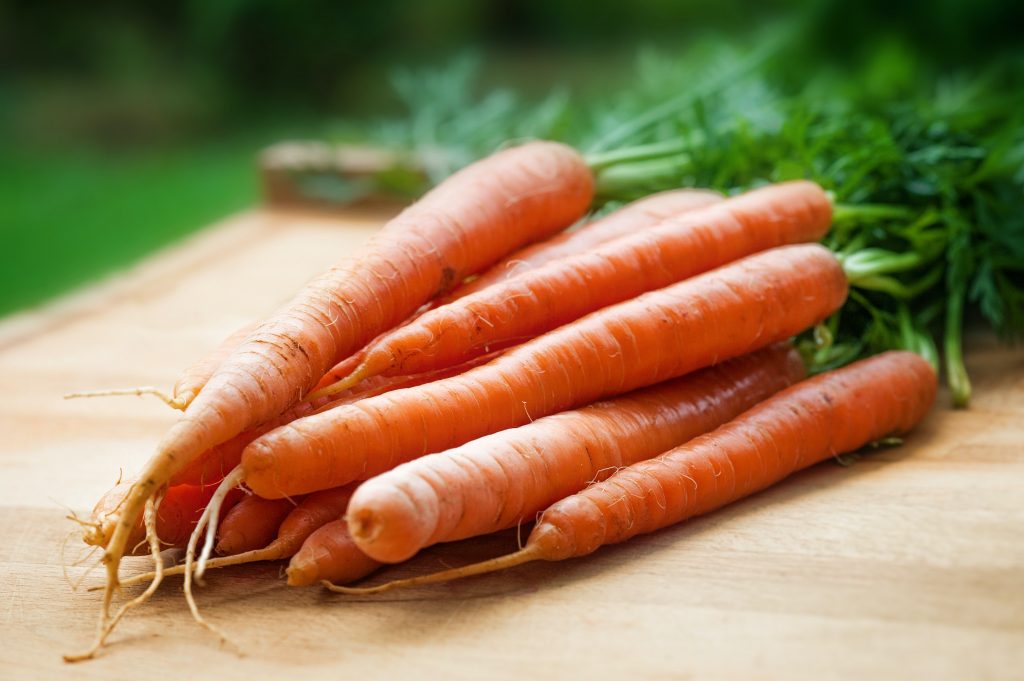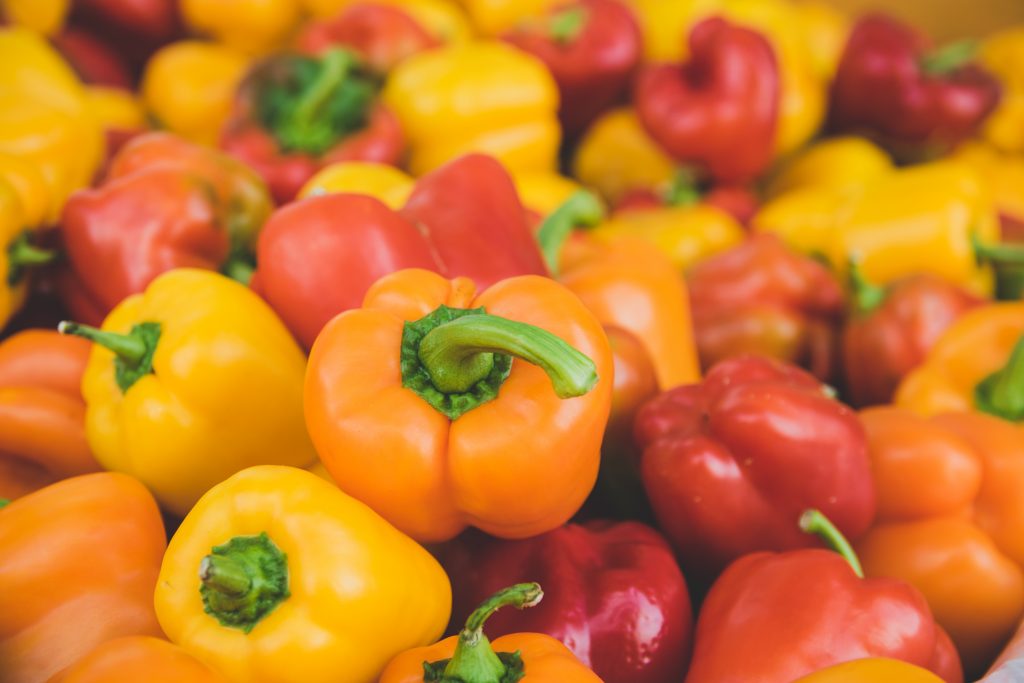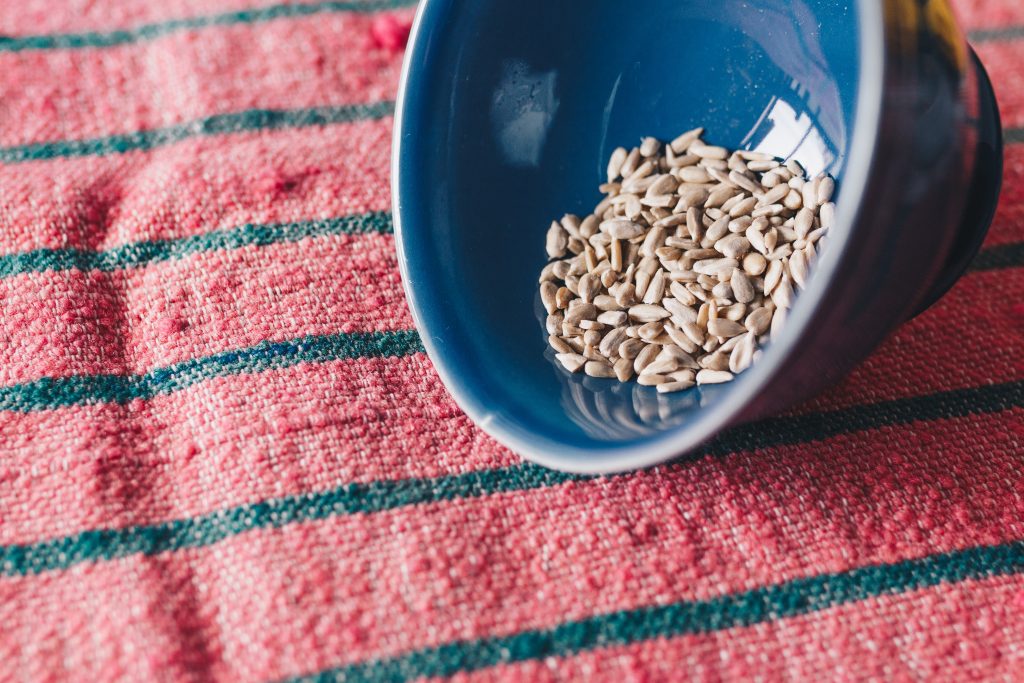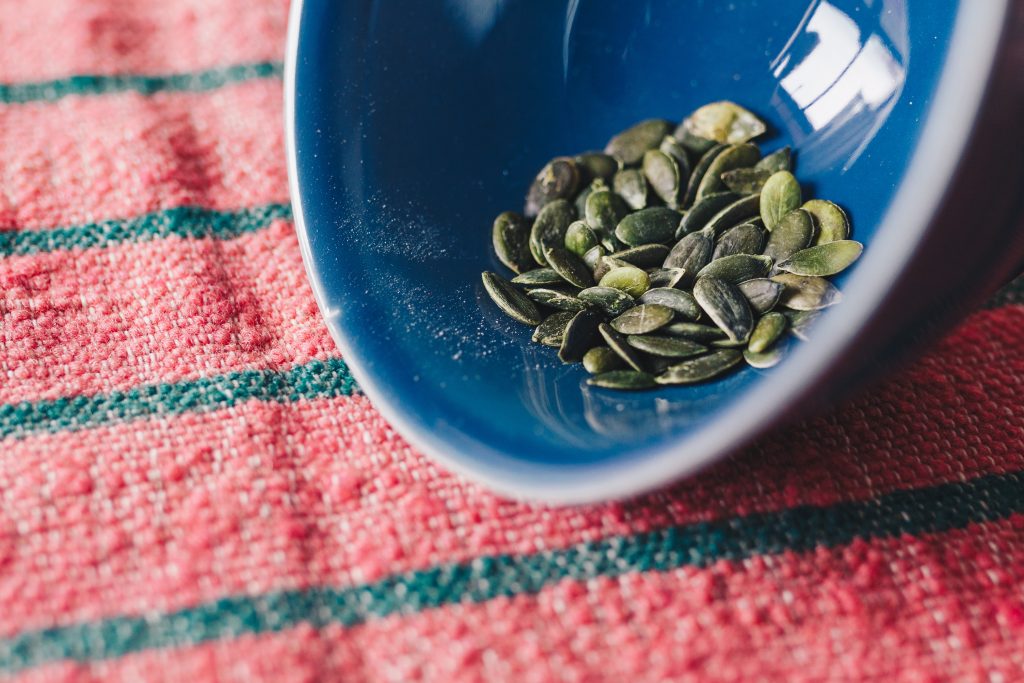The five key antioxidants that support your immune system include vitamin A, C, E, selenium and zinc. These antioxidants are vitamin and trace minerals that regulate cell damage from oxidative stress, mediate inflammation in the body, and manage infection from invading pathogens.
Ingredients that contain high levels of antioxidants protect your cells against free radicals, highly reactive molecules that can harm your body by creating oxidative stress (1).
Free radicals arise from internal and external causes. Internally, free radicals are a byproduct of metabolic processes that are formed in your body daily. Externally, lifestyle factors like chronic stress and the consumption of foods such as refined carbohydrates and processed meats create free radicals.
Although taking supplements is an easy and convenient way to increase antioxidants in your diet, we find that getting these vital immune-boosting nutrients from food is the best way to support the body.
Here are five antioxidants that support your immune system:
1) VITAMIN A
Vitamin A is known for its anti-inflammatory properties and its critical role in enhancing immune function. Research shows that vital immune organs need a consistent dietary intake of vitamin A to regulate the growth and production of T cells, a type of white blood cell that protects the body from pathogens (2).
There are two forms of vitamin A from food – preformed vitamin A and provitamin A carotenoids.
Preformed vitamin A is exclusively found in animal products such as dairy, eggs and fish, while provitamin A carotenoids – such as beta-carotene – are rich in darkly coloured vegetables and fruits (3).
Food sources of preformed vitamin A are more easily utilized by the body than plant-based sources. Factors such as genetics, diet, overall health and medications may affect the body’s ability to convert carotenoids into active vitamin A effectively.
Those that follow a plant-based diet such as vegans should be diligent in getting enough carotenoid-rich foods in their diet. Choose ripe, coloured fruits and cooked, yellow tubers like sweet potatoes, carrots, yellow and orange bell peppers.
According to Health Canada Guidelines, the recommended dietary allowance (RDA) for men and women is 900 mcg to 700 mcg, respectively. Tolerable upper limits are 3000 mcg for adults (4).
2) VITAMIN C

Probably the most well-known nutrient on this list, vitamin C is a potent antioxidant that supports your immune system. It contributes to immune defence due to its ability to fight free radicals, modulates stress hormones and improves blood flow.
While supplementation reduces symptoms of the common cold, it is unable to reduce the frequency of the common cold in a healthy population. Moreover, vitamin C can reduce the duration of a cold by 8-14% in any population, when taken daily. Research shows that vitamin C from food at a dose of 100 mg to 200 mg per day is effective at maintaining a healthy immune system (5).
Claims of hyper dosing vitamin C at higher levels (5 to 10 grams per day) are said to be more effective, though further research is required to validate this (6).
Add vitamin C to your diet from whole foods sources like broccoli, orange, lemon and orange zest, strawberries, cauliflower, bell peppers, pomegranate, mango, and grapefruit.
3) VITAMIN E
 Vitamin E is a fat-soluble antioxidant that regulates T-cell mediated immune function.
Vitamin E is a fat-soluble antioxidant that regulates T-cell mediated immune function.
In a one-year study, 617 elderly subjects supplemented with 134 mg of vitamin E per day. They found that supplementation significantly reduced the risk of contracting the common cold, which may lead to respiratory infections (7).
For healthy individuals, the recommended dosage of vitamin E is 15 mg per day. Despite this, a higher dosage of 50 mg to 200 mg per day is recommended in older populations to improve immunity.
Interestingly, the diets of most Americans provide less than the recommended amount of vitamin E per day. Although healthy people rarely show any signs of deficiency (8). Often, those with health conditions related to an impaired ability to digest and absorb fat, such as Crohn’s disease, cystic fibrosis, and genetic variants, show signs of deficiency (8).
Find out if you have genetic variants in the APOA5 gene that is involved in vitamin E metabolism.
Vitamin E occurs naturally in many foods. Maintain adequate levels of vitamin E with foods like sunflower seeds, hazelnuts, almonds, avocado and peanuts.
4) SELENIUM

Selenium is an essential mineral with powerful antioxidant properties. It plays a vital role in every part of the immune system, regulating innate and adaptive immunity (9).
As an essential mineral, selenium must come from food because the body does not produce it naturally. The RDA of selenium for an adult is 55 mcg with a tolerable upper limit of 400 mcg.
While selenium deficiency is very rare in North America, those undergoing kidney dialysis or people living with HIV are among those most likely to have inadequate intakes of selenium.
On the other hand, evidence suggests that excessive selenium intake may be harmful. Regular consumption of high selenium foods – Brazil nuts (544 mcg per serving) – may lead to selenium toxicity (10). We recommend choosing foods such as halibut, shrimp, ham, and sardines that yield an average of 44 g of selenium per serving.
Plant-based sources of selenium include brown rice, baked beans, oats, lentils, spinach and cashews.
It is important to note that selenium intake from plant-based foods vary, depending on the amount of selenium in the soil that it is grown in. As a result, selenium concentrations in plant-based foods vary widely by geographical location.
5) ZINC

Similar to selenium, zinc is also an essential mineral that is vital to the immune system. Zinc deficiency increases susceptibility to infections and the development of chronic diseases (11). Even mild to moderate levels of zinc deficiency can impair immune function and natural killer cell activity.
In North America, zinc deficiency is uncommon. When zinc deficiency does occur, it is due to inadequate zinc intake or absorption. People at risk of zinc deficiency include those with digestive disorders such as ulcerative colitis, Crohn’s disease, and short bowel syndrome. Pregnant and lactating women need to consume higher amounts of zinc from dietary sources due to high fetal requirements (12).
Vegetarians may require as much as 50% more RDA for zinc than non-vegetarians, as zinc from meat is more bioavailable than plant-based sources. Adopting techniques such as soaking and sprouting of legumes, beans, and whole grains, can assist in zinc absorption (12).
The RDA for men and women is 11 mg and 8 mg, respectively. Pregnant women need 11 mg of zinc per day, while lactating women need 12 mg. Tolerable upper intakes of zinc are 40 mg across all adult populations.
Like vitamin C, zinc supplements are popular for immunity. Yet, adequate amounts of zinc from food are easy to obtain. Foods rich in zinc include baked beans, pumpkin seeds, cashews, grass-fed beef, crab and lobster.
Key Takeaway
Strengthen your body with these five antioxidants that support the immune system. Boost your immunity with a diet rich in vitamin A, C, E, selenium and zinc. Aim for a balanced, whole foods diet full of deeply coloured fruits and vegetables, nuts and seeds, grass-fed meats, and wild-caught fish.
As Dr. Claudia Welch once said, “It is not possible for a pill to counteract what we put in our bodies all day, 365 days a year.” That’s why the best way to support the immune system is to nourish it with nutrient-dense antioxidant-rich foods.
To help you get started, we’ve created a recipe book bursting with foods rich in antioxidants that support your immune system.

